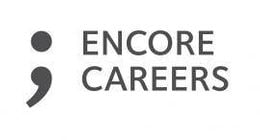Update Your Skills at a Community College
2-year schools can provide direction for new careers
Community colleges can be a terrific option for updating your job skills. Adults looking for flexibility and value may find both at two-year colleges. As The Wall Street Journal reports, “The humble community college is turning out to be one of the best resources for older adults seeking new directions—and new jobs—in later life.”
Typically, the schools provide:
- flexible hours—night and weekend classes
- part-time course loads
- online classes
- credit for work experience
- technology support
- abbreviated courses
- certificate programs
Two-year colleges recognize the value in accommodating boomers. “The numbers tell the story,” says Norma Kent, spokeswoman for the American Association of Community Colleges. “There are 78 million individuals in this population and many of them are reaching what used to be retirement age. All the studies we have read say that if we lose the resource that these individuals represent, whether in work or service, it is going to be a tremendous loss to our economy and our society.”
Community colleges looking to attract midlifers are offering:
Fast-track options. Virginia’s community college system developed EducateVA, a program that accelerates teacher training. It’s available to anyone with a four-year degree and at least five years of employment history. In 16 weeks, graduates can earn a one-year provisional license that allows them to start teaching while finishing coursework online anytime and on Saturdays in person.
Short applications. California’s Coastline Community College turned a long application process into a single-page document for prospective gerontology students.
Career counseling. Florida’s Broward College recognized a dilemma facing many adults thinking about a new career: They don’t know where to start. So Broward set up a free career counseling course to help adults 50 and older explore their options and plan. If your local community college isn’t accommodating boomers, Kent advises assertiveness. “If I were interested, I would call up my local community college and ask, ‘What are you doing to meet my needs?’”
Another path to the next stage
Seeing a demand among encore career-seekers, four-year colleges are developing or deepening programs to retrain and reinvigorate. Harvard University has established the Advanced Leadership Initiative, which trains fellows for “next stage work: starting a foundation, a campaign for a cause, a social enterprise, or public office with the potential for big impact on a major social problem.”
The first fellowships began in 2009 with 14 participants, including leaders in military, business, and medical fields.
Reaching retirement age “is only the start of a whole period of life that for many people has no content,” says Harvard professor Rosabeth Moss Kanter, one of the initiative’s creators. “We now have a stage of life that stands there to be invented.”
There’s a growing movement among four- year schools to help potential students at all levels reach new, worthwhile career goals, says Mary Beth Lakin, associate director for special projects at the American Council on Education’s Center for Lifelong Learning.
But finding such programs can be tricky for the consumer.
“There’s not necessarily a big sign on the door,” Lakin says. She recommends contacting local schools to see what they offer.


